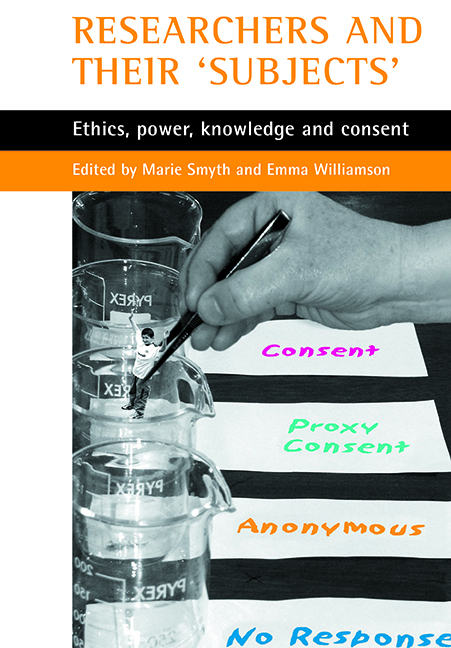one - Ethical considerations in service-user-led research: Strategies for Living Project
Published online by Cambridge University Press: 20 January 2022
Summary
Introduction
The rationale for user-led research in mental health has been widely documented in recent years (see, for example, Beresford and Wallcraft, 1997; Faulkner and Layzell, 2000; Nicholls, 2001; Nicholls et al, 2003). Such work includes placing independent research that is designed and carried out by people with direct personal experience of mental or emotional distress in a framework of emancipatory research. It aims not only to increase the sum of knowledge, but also to alter the status quo, to influence and change relationships of power. It is more overt than traditional approaches about the politics of research; in fact, it aims to shift these. Such research recognises the effect of research on those taking part as well as its potential wider effects on the situations, dynamics and organisations that it is investigating.
In mental health, user-led research has developed in the context of a world where people using mental health services have traditionally been asked very personal questions by outside researchers (often academic or clinical researchers) without any influence on the sorts of questions that get asked or what happens to the information that they share with such researchers. In this sense, user-led research is about people with experience of distress – service-users or survivors – taking control of their lives. This is the context in which the Strategies for Living Project based at the Mental Health Foundation has developed and grown.
The Strategies for Living Project
This chapter focuses on the experience of the second phase of this project: Strategies for Living Phase II. This phase attempted to implement a particular set of ethics. The ethical approach taken was built on the values of the programme: a person-centred approach; responsiveness to individual needs; a recognition of diversity; involving participants in the progress of the research; and the usual ethical considerations in research, including clarity of information and sensitivity to confidentiality, among others. It is generally agreed that attention to ethics should be an integral part of all research processes. In Strategies for Living, there is a strong belief that sound research and sound ethics go hand in hand.
Strategies for Living is a programme of work addressing mental health services that aims to promote and encourage the development of service-user and survivor empowerment through supporting research, evaluation and information gathering.
- Type
- Chapter
- Information
- Researchers and their 'Subjects'Ethics, Power, Knowledge and Consent, pp. 19 - 34Publisher: Bristol University PressPrint publication year: 2004



